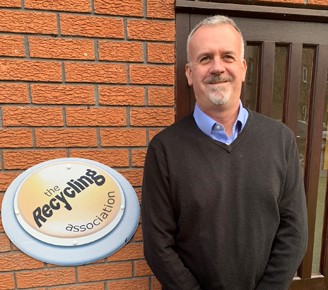OPINION: As head of The Recycling Association who has led on improving the quality of materials, I am not only bitterly disappointed about the verdict but also that the Environment Agency decided to bring the prosecution in the first place, and I ask the question exactly what has it achieved?
I have viewed the recyclate that Biffa produce at their Edmonton MRF on numerous occasions and indeed viewed and sampled the material Biffa were prosecuted for.

If that material was illegal, then my 30 years’ experience in the paper recycling industry counts for nothing, as the material, in my opinion, is a quality product fit for paper making purposes in a sustainable manner with zero impact on the environment. How can a jury with no technical competence be expected to make an informed decision like this?
I am also disappointed by the emotive language used in the Environment Agency’s press release where they state “Illegal waste exports blight the lives and environment of those overseas”.
How do Biffa fall into that category when their baled material goes straight into the mill process and where they have fit for the purpose waste management systems that handle the outthrow produced in all recovered paper worldwide? It is a careless use of language that can only serve to mis-lead and further undermine the confidence of the general public when it comes to recycling.
“We have asked the Environment Agency on numerous occasions to help us develop a standard that both the regulator and the producer works to”
We have asked the Environment Agency on numerous occasions to help us develop a standard that both the regulator and the producer works to.
They have repeatedly refused point blank to do so and prefer to go to court, and in this case have decided to bring a prosecution for material with 0.9% average non-paper contamination when EN643, the industry standard, allows 1.5%.
Instead, they have yet again undermined their paymasters, UK government, who are committed to increasing recycling in the UK with their ambitious Resources and Waste Strategy.
How can we achieve the objectives of this waste strategy with this action against businesses who handle large volumes of material in an imperfect system, and produce as higher quality product as it’s just about possible to do so and in an environment where local authority budgets have been cut to such a degree that their service delivery has been severely impacted? And where no one still has the faintest idea what is legal and what is illegal other than flaunting some subjective evidence in front of a jury who are shooting in the dark.








Subscribe for free